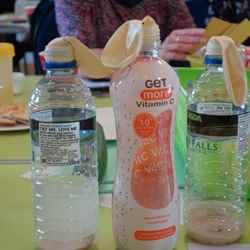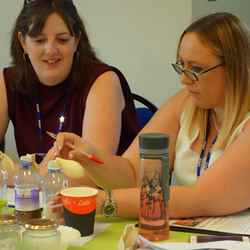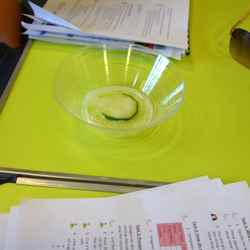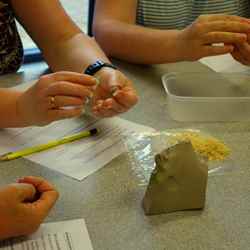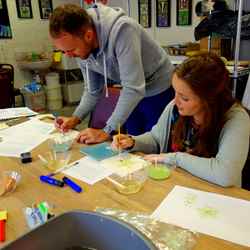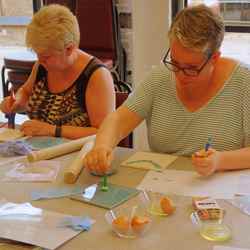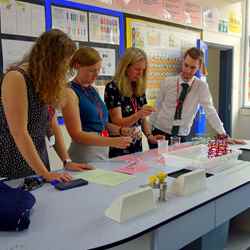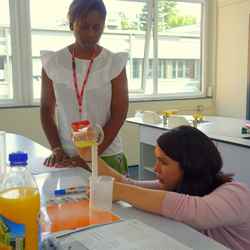Supporting teachers
Heidi Dobbs, Education Coordinator for the Midlands, explains some of the innovative ways that she and her fellow education coordinators support teachers to get the most out of the curriculum and the resources available to them.
As education coordinators our remit is to support education in chemistry across the board, right from primary school to university, and part of that is informing teachers where they can find support and directing them to resources and ideas that they may not have time to look for themselves.
One of the ways we do this is to run sessions for teachers on particular themes or topics. For secondary schools we do this through the Learn Chemistry Partnership Scheme, a free programme that provides support to teachers and teacher trainers.
Things are a bit different for primary school teachers because their lessons are more whole-curriculum focused so they would be unlikely to come to the Royal Society of Chemistry for resources. We therefore work alongside networks such as the Primary Science Teaching Trust and PSQM (Primary Science Quality Mark) hubs to run events specifically for primary teachers.
Our involvement in these events gives teachers the confidence of knowing they are getting their information from a professional body, which they do value very strongly. It’s also a networking opportunity – a chance to talk to other teachers with similar interests, get support with particular areas of the curriculum, swap ideas and work together to improve things for everyone.
We get a lot out of it ourselves too – it’s just a great experience with the teachers. They’re always so receptive, and we learn an awful lot from them about the reality of what they’re facing.
Tailored support
Each of the education coordinators tailors their offering to the needs of their region. For example, on 26 June I ran an event with the teacher network in Northampton, hosted by Northampton School for Boys. They felt that they wanted some support with the mathematical content of the new GCSE. So we ran a session that looked at how chemistry practicals can be used to support numeracy objectives.
We also work closely with local museums to help them support the curriculum. For example, I’ve been working with the Jackfield Tile Museum in Ironbridge Gorge. There’s a lot of focus of clay, tiles, and glazes, so it’s a great opportunity to look at colour, and transition metal chemistry, as well as the structures of materials and their uses, which are important factors in the chemistry curriculum.
I’ve also worked with the Black Country Living Museum, who are very keen to develop their STEAM offering (Science, Technology, Engineering, the Arts and Mathematics). Their exhibitions cover the late 1800s to the 1930s, and they wanted to do something around the theme of food, particularly WWI and 'Dig for Victory'. So we looked at rationing and simple questions like how the Victorians would preserve food when they didn’t have fridges.
Apart from running our own courses, we help teachers in other ways too. For example, the National Space Academy runs a course on linking the Key Stage 3 curriculum to space. Through the Learn Chemistry Partnership we were able to greatly reduce the fees for this course – making it possible for teachers to attend who otherwise wouldn’t be able to.
Further information
If you are a teacher looking for support, get in touch with your local education coordinator in the first instance, who can advise on what support is available in your area.
If you work at a secondary school, you can also register your school as a Learn Chemistry Partner School. As part of this you will receive half-termly newsletters informing you about relevant events in your area.
Press office
- Tel:
- +44 (0) 20 7440 3351
- Email:
- Send us an email
Education support
- Email:
- Send us an email

